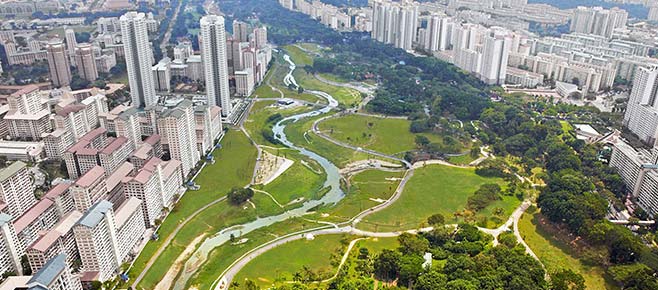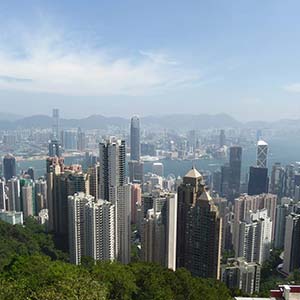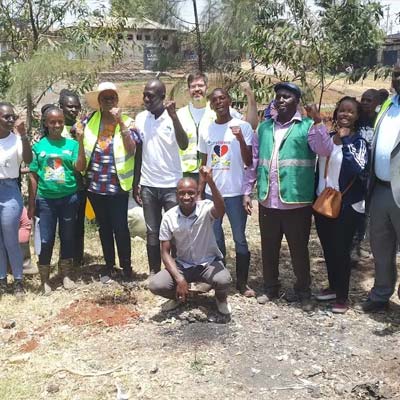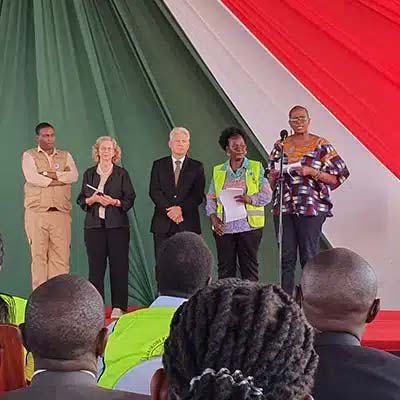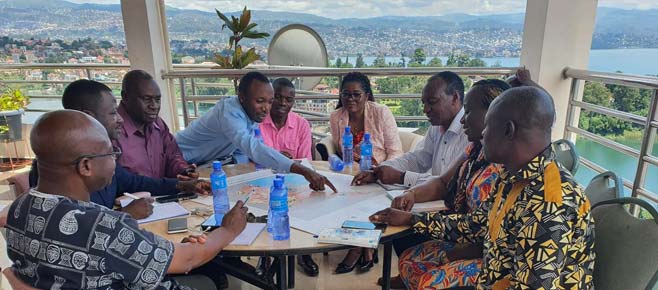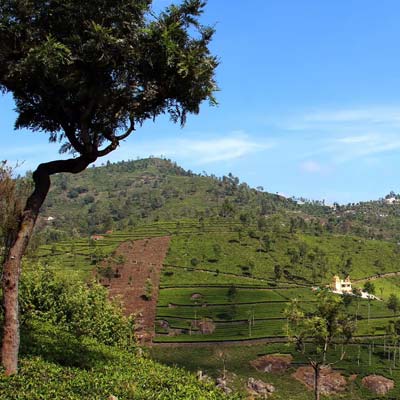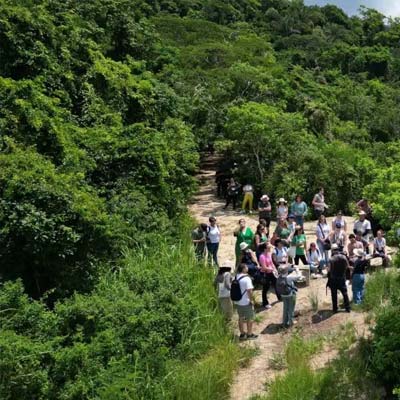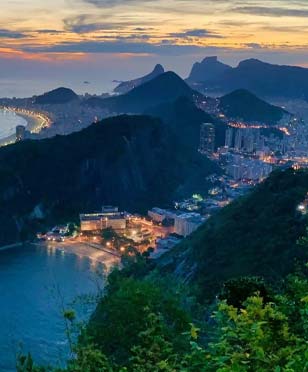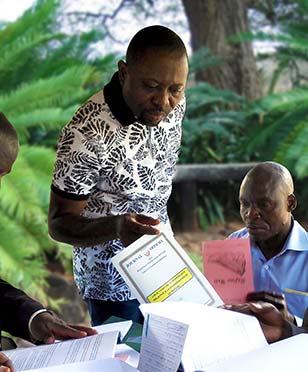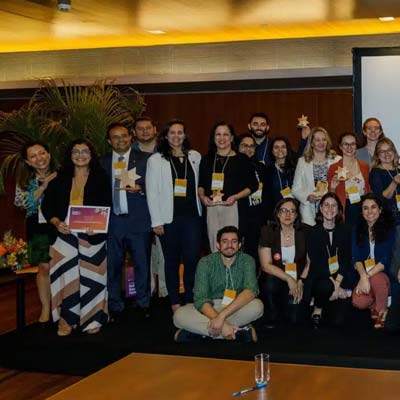Expanding Urban Tree Valuation Capacity in Latin American Cities
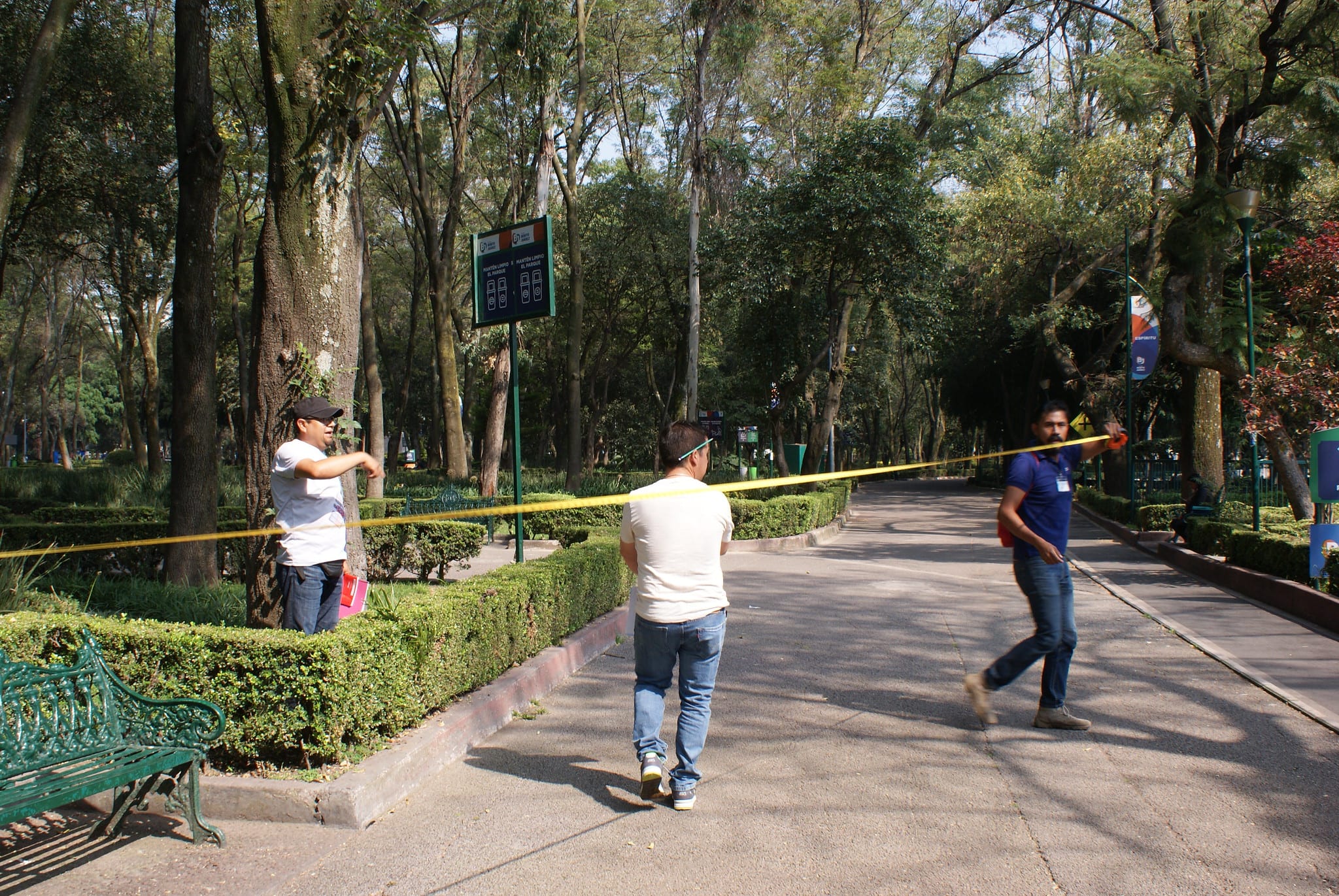
Around 25 representatives from the cities of Guadalajara, Mexico City, Culiacán, Mérida, León, and two Brazilian cities, Palmas and São Paulo, joined the training on i-Tree, a tool developed by the USDA Forest Service and recently adapted to Mexico for quantifying the environmental benefits provided by trees and forests. Participants gained new analysis skills, and also exchanged experiences on their city’s management and restoration of urban forests and public space.
The i-Tree tool allows city planners to estimate the amount of carbon dioxide (CO2) trees capture in a year using field measurements of the physical structure of urban trees, such as the size of the tree canopy. By adding in information on the cost of carbon, the tool can estimate the economic value of the trees in a street, park, or an entire city.
At the first Cities4Forests workshop in Mexico, city officials gained new technical expertise on the use of i-Tree to increase technical knowledge about urban forests.
This first Latin American workshop accomplished the following Cities4Forests objectives:
- Strengthen the technical capacities of cities. Providing training on a tool helps inform decision makers of the benefits of urban forests and green areas.
- Provide tools for cities to generate data and make the case for urban forests. The i-Tree tool helps quantify the benefits of urban forests and highlights the importance of the natural environment, specifically the environmental and social services it provides to the city and its residents.
- Exchange experiences and integrate a community of practice. The training allowed the six Latin American cities to understand and learn from other cities’ progress and challenges.
The capacity building workshop was taught by Stephanie Fabiola López López, an expert in urban forest management with the USDA Forest Service and a consultant to the Mexican Fund for Nature Conservation (FMCN). These two organizations have both helped to support the adaptation of i-Tree for Mexico, such as by recalculating the analysis metrics in the software using local data from Mexican cities on climate and air quality.

The introductory session of the workshop focused on the importance of valuing trees for their economic, environmental and social benefits and recording these benefits through a tree inventory. Doing an i-Tree analysis could help cities:
- Support arguments in favor of urban parks and natural areas
- Provide reliable information on the condition of the city’s trees
- Reduce subjectivity in management decisions
- Enhance the ecosystem services that trees generate
- Minimize costs from tree maintenance
- Prolong the life of the urban forest
The workshop included information on how to do a tree inventory as well as how the tool does its analysis using field data, species databases, and pollution and climatological information. i-Tree’s free access, scientific basis, technical support, and continuous software update make the tool a good choice for these cities to adopt.
During the second and third day, the participants explored the area around the Benito Juárez municipality’s mayoral office and the Parque de los Venados. They got out in the field to measure a variety of tree-specific data and register the tree locations. Using forestry tools such as clinometers to measure elevation and tape measures, participants recorded variables such as trunk diameters, tree height, and canopy coverage, among others.
With the i-Tree tool, decision makers can quantify and monetize the environmental services of forests, a key part of the urban planning process.
Adriana Lobo, Executive Director of WRI México, highlighted the importance of considering the city as part of an environmental system and creating the policy arguments needed to protect green areas inside and near the cities from real estate pressures and as part of a strategy to reverse the expansion of urban development.
“We believe that this is a very significant project, we are talking about rescuing big cities like São Paulo, Palmas, Mexico City, Guadalajara. We hope that this tool in which you are training, is an important piece in the process. This tool is very important in the process of urban green space restoration. It is necessary to prove the need and the real environmental and economic value of having trees in our cities, ”said Adriana Lobo to conclude the workshop.
With 19 Latin American cities now part of the Cities4Forests initiative, this type of technical trainings is important to empower Latin American cities to protect and restore their inner and nearby forests.
